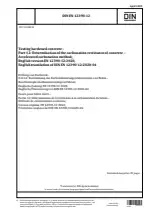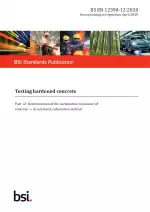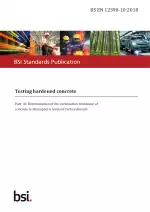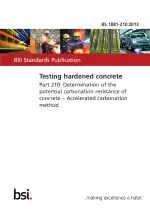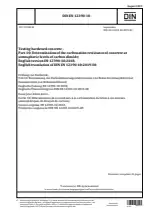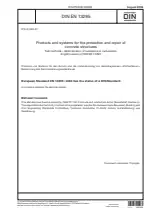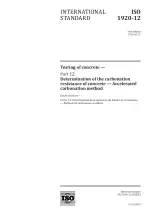Testing hardened concrete - Part 12: Determination of the carbonation resistance of concrete - Accelerated carbonation method
Also Known As:
The DIN EN 12390-12 standard focuses on determining the carbonation resistance of hardened concrete using an accelerated carbonation method. The purpose of this standard is to provide a quantifiable measure of how well concrete can withstand carbonation, which is the process of carbon dioxide infiltrating concrete and reacting with its alkaline components.
To carry out the test, the standard specifies a minimum duration of 112 days. This includes a 28-day curing period under water, a 14-day preconditioning period, and a 70-day exposure period to elevated levels of carbon dioxide. The test is conducted under controlled conditions to simulate accelerated carbonation, as opposed to being a method for measuring carbonation depths in existing structures.
By establishing this standard, it enables concrete manufacturers and users to assess the carbonation resistance of concrete. This information can be used to ensure the durability and longevity of concrete structures, as carbonation can lead to the corrosion of reinforcement steel and potential structural damage over time.
| Descriptors | Accelerated, Carbon dioxide, Carbonates, Carbonation, Concentration, Concrete support structures, Concretes, Construction, Construction materials, Corrosion, Definitions, Evaluations, Fitness for purpose, Instruments, Methods, Pretreatment, Procedures, Properties, Reagents, Reinforced concrete, Resistance, Solid concrete, Stress, Structures, Test specimens, Testing, Testing conditions, Resistors, Processes, Preconditioning, Trusses |
| ICS Codes | 91.100.30 - Concrete and concrete products |
| Language(s) | English |
| File Size | 1.7 MB |

